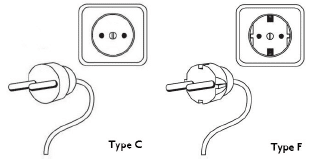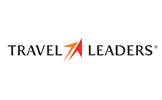TURKEY

Fun Facts From Globus Tours
- Istanbul is the only city in the world that is built on two continents; you can cross from Europe to Asia and back again in minutes, via the three suspension bridges built over the Bosporus natural water strait between the Black Sea and the Sea of Marmara.
- St. Peter’s Church, situated in Antioch (Antakya), is the first church built by man.
- One of the oldest known human settlements is in Catalhöyük, Turkey (dating back to the 7th millennium BC).
- There are approximately 11,000 species of flowers in Europe, out of which 9,000 are native to Turkey.
- Turks introduced coffee to Europe.
Nestled between the Black and Mediterranean Seas, Turkey is the bridge between Europe and the Middle East—both physically and culturally. Turkish territory covers approximately 302.500 square miles; 97% is in Asia (Anatolia or Asia Minor), and 3% is in Europe (Thrace). With more ancient cities than any other country in the region, miles and miles of warm-water coastline, and a varying landscape, Turkey has much to offer the visitor, who can always be sure of a warm welcome.
The modern Turkish republic was founded in 1923 by Mustafa Kemal Ataturk, the national hero and Turkey’s first president. The current population is just over 82 million; 99% are Muslim, and 1% are Christians and Jews.
Turkish cuisine is reputed to be one of the three greats of the world (Chinese and French are the others). The influence of many different civilizations has created rich and varied dishes, such as vegetables cooked in olive oil, soups, and an endless variety of mezes (appetizers); doner and shish kebabs; grilled, fried, or steamed fish; and cucumber in yogurt. Honey candy and Turkish Delight make wonderful desserts, followed, if you dare, by Turkish coffee, which is often thick enough to stand a spoon up in! The national drink is raki, which is distilled from grapes and flavored with aniseed. Enjoy shopping for hand-woven Turkish carpets and kilims, leather goods, ceramics, glassware, beautifully worked silver, and gold and turquoise jewelry.
The short stories and jokes of 13th-century Turkish author Nasreddin Hodja make enjoyable reading. One example: a neighbor told him, “Hodja, I saw two men carrying a cauldron of cooked rice.”
“It’s none of my business” replied Hodja.
“But I think they were taking it to your house,” said the neighbor.
“Then, it’s none of your business!” he replied.
One experience you don’t want to miss when traveling through this fascinating country is a Turkish bath!
VISAS, PASSPORTS, AND OTHER ENTRY REQUIREMENTS
Visas to Turkey are required for US citizens. If you hold a passport from another country, please check with your local consulate about requirements for travel to Turkey. All passengers traveling internationally are required to have a passport. Please carry proper identification (your passport) on you and do not leave it in your suitcase or hotel room.
Exception:
Those traveling by cruise ship are allowed to enter the country with a landing card provided by the cruise line.
In general, going through a visa service is more expensive but it offers convenience and peace of mind. If you choose to go this route, we recommend contacting Generations Visa Services (GenVisa), our preferred partner for visa and passport services, at least 90 days prior to departure. GenVisa has a special website and toll-free number. Call 800.845.8968, email info@genvisa.com, or visit their below websites for additional information. Our travelers receive discounted prices and other special services:
- For Globus, visit: genvisa.com/globus
It is advisable to carry your passport with you at all times.
COUNTRY CODES
The country code for Turkey is 90. When calling to Turkey from overseas, dial your international access code (011 from the US/Canada), followed by the country code, area code, and phone number. Phone numbers in Turkey are seven digits in length. Dialing from the US/Canada: 011 90+## ####.
CURRENCY
The official currency of Turkey is the Turkish Lira.
Bank hours: 8:30 a.m. to 12 p.m. and 1:30p.m. to 5 p.m., Monday through Friday.
1 TURKISH LIRA (TRY) = 100 Kuruş
- Banknote denominations: 5, 10, 20, 50, 100, 200 Lira
- Coin denominations: 1, 5, 10, 25, 50 Kuruş; 1 Lira
U.S. Dollars are generally accepted in most places. Small denominations are most useful ($1 and $5); change will be given in the local currency (Turkish Lira).
Credit card use is becoming more widespread, but it is still not universal (Visa and MasterCard are accepted, more readily than American Express). All credit cards with a chip have to be used with a PIN code. Due to increasing credit card fraud worldwide, be prepared to show identification (passport) when making transactions, and when the card is being processed, do not let it out of your sight.
For the most current exchange rates, please go to our website at Globusjourneys.com/Currency.
BUDGETING AND SHOPPING
The following budget guidelines are just approximate values or starting values for meals and are per person. Actual prices will vary widely by restaurant and city within a country but below are some averages as provided by our experienced personnel.
- The approximate cost of a soft drink/mineral water/coffee is 5-6 Lira.
- An average lunch consisting of a salad or sandwich and a soda or water starts at approximately25-30 Lira.
- Dinner at a mid-range restaurant with dessert and a non-alcoholic beverage starts at approximately 50-60 Lira.
Shopping specialties: hand-woven carpets and kilims, leather goods, ceramics, glassware, worked silverware, gold and turquoise jewelry.
TIPPING
Restaurants include a service charge (in general) on the bill. Often the wait staff do not receive this service charge as tip, so we recommend leaving an additional 10-15% in cash. Due to the low circulation of the 1
Kuruş coin, some cashiers may round up the total sum to the next 5 Kuruş. This is not a gratuity.
All taxis have to use taximeters, and tipping is not necessary.
Tip hotel staff a minimum of 5 Lira for room service.
A few coins will be needed for public restrooms as restroom attendants expect a small gratuity.
ELECTRICITY AND ELECTRICAL OUTLETS
Outlets
Voltage for outlets is 230V. North American voltage is generally 110V. Therefore, you will need a converter for your travels. Adapters will be necessary to adapt your plug into the outlet, but these may not convert the voltage, so both devices are necessary. Turkey uses a round, 2-prong plug that looks like:

TEMPERATURES
Turkey, for the most part, enjoys plenty of sunshine. The summers are hot and dry, while winter brings milder and wetter weather. As you go inward and upward, the climate becomes cooler, with Ankara receiving its fair share of snow each winter. Bring lightweight clothing from May to September. Other months are cooler and wetter, so pack warmer layers and rain gear. And, don’t forget beachwear if you’re heading to the coast. To help you plan, below are average low and high temperatures for Turkey.

To convert to Celsius, subtract 30, then divide by 2. While not exact, this simple formula will give a close estimation.
FOOD SPECIALTIES
Soups; vegetables cooked in olive oil; mezes (appetizers); doner and shish kebabs; grilled, fried, or steamed fish; cucumber in yogurt; honey candy and Turkish Delight; coffee; and raki (distilled from grapes and flavored with aniseed).
FEW WORDS OF THE LOCAL LANGUAGE
Turkish:

Hello/Hi: Merhaba, Good morning: Günaydin, Good evening: Iyi aksamlar, Have a nice day: Iyi günler, Enjoy your meal: Afiyet olsun, Please: Lütfen, Thank you: Sagol/Tesekkür ederim, How much?: Ne kadar?, 1: Bir, 2: Iki, 3: Uc, 4: Dort, 5: Bes, 6: Alti, 7: Yedi, 8: Sekiz, 9: Dokuz, 10: On, Where is…?: Nerede…?, How are you?: Nasilsin?, Yes: Evet, No: Hayir, Do you speak English?: Ingilizce konusuyor musunuz?, I don’t understand: Anlamiyorum, Please write it down: Yazar misiniz lütfen, Telephone: Telefon, WC/Toilet: WC/Tuvalet, Tea: Cay, Coffee: Kahve, Bottled water: Sise suyu, Restaurant check/ bill: Hesap, Cheers!: Serefe!
U.S. DEPARTMENT OF STATE COUNTRY INFORMATION
Additional country-specific information for US citizens can be found on the US Government’s website www.travel.state.gov. Here, you can find the most up-to-date information about destination descriptions, passports/visas, safety and security, transportation, travel local laws, alerts/warnings, vaccinations, and more. For citizens of other nations, we recommend you consult your local consulate for travel information, regulations, and requirements.












